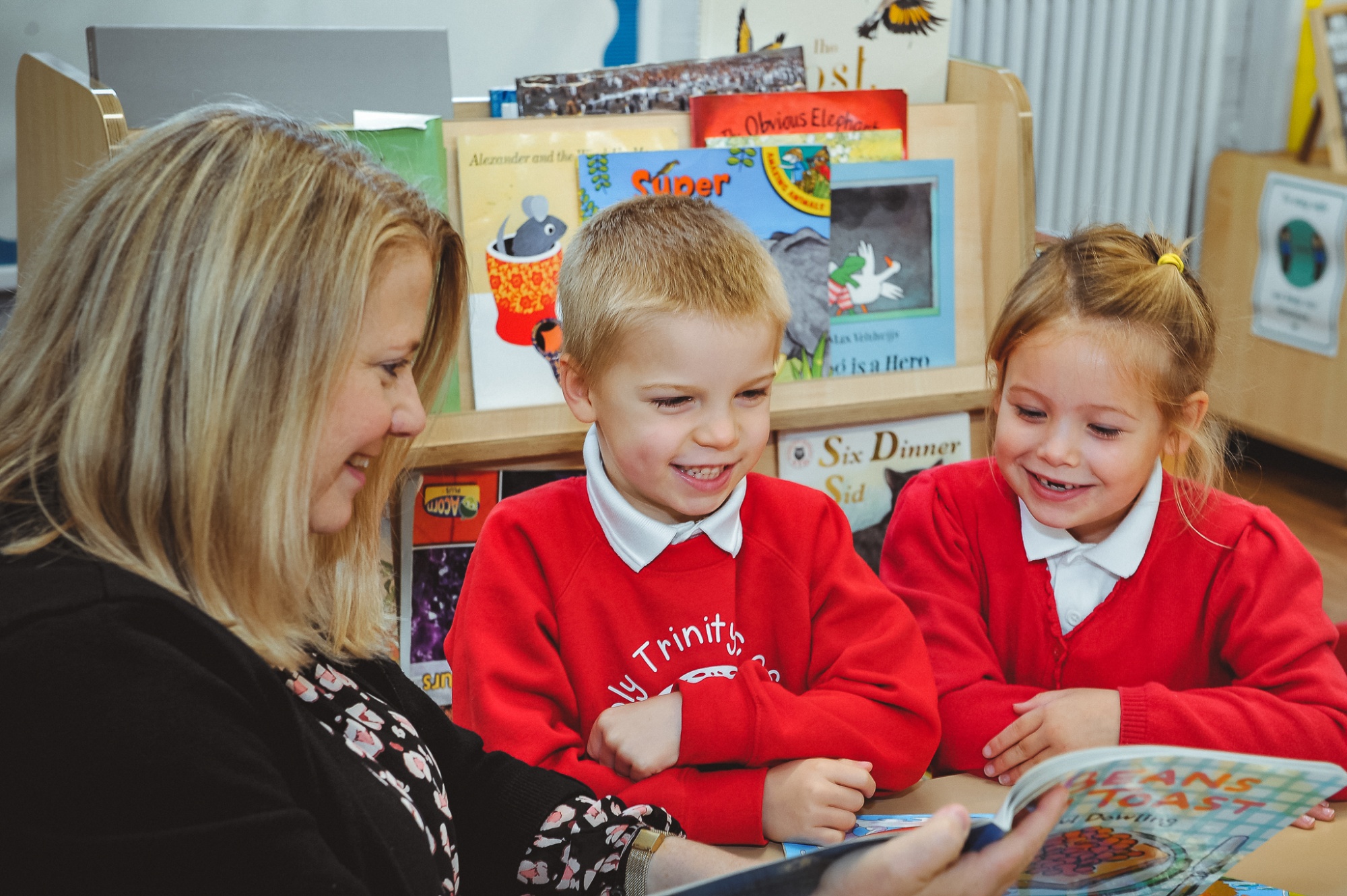English
Intent
At Holy Trinity, we believe that a quality English curriculum should develop children’s love of reading, writing and discussion. We aim to inspire an appreciation of our rich and varied literary heritage and a habit of reading widely and often. We recognise the importance of nurturing a culture where children take pride in their writing, can write clearly and accurately and adapt their language and style for a range of contexts. We want to inspire children to be confident in the art of speaking and listening and who can use discussion to communicate and further their learning.
We believe that children need to develop a secure knowledge-base in English, which follows a clear pathway of progression as they advance through the Early Years and KS1 curriculum. We believe that a secure basis in literacy skills is crucial to a high quality education and will give our children the tools they need to participate fully as a member of society.
Through our high-quality teaching we will develop the following essential characteristics of readers and writers
- An excellent knowledge and understanding of literature from a range of fiction and non-fiction text, including traditional tales and poetry
- A love of reading and the ability to express what they enjoy about the books they read.
- Confidence to read, write and speak for a range of purposes
- A desire to embrace challenges, including opportunities to read and listen to literature at varying levels
- A develop different ways of expressing their imagination and creativity through writing in different contexts
Implementation
At Holy Trinity, the aims from English are embedded across our English lessons and the wider curriculum. We have a rigorous and well organised English curriculum that provides many purposeful opportunities for reading, writing and discussion.
Teachers plan using quality texts as a focus. They use Read, Write Inc, as appropriate to their classes, but also ensure that cross curricular links with concurrent topic work are woven into the programme of study. Our curriculum closely follows the aims of the Early Years Foundation Stage and National Curriculum for English 2014.
The National Curriculum for English aims to ensure that all pupils:
- read easily, fluently and with good understanding
- develop the habit of reading widely and often, for both pleasure and information
- acquire a wide vocabulary, an understanding of grammar and knowledge of linguistic conventions for reading, writing and spoken language
- appreciate our rich and varied literary heritage
- write clearly, accurately and coherently, adapting their language and style in and for a range of contexts, purposes and audiences
- use discussion in order to learn; they should be able to elaborate and explain clearly their understanding and ideas
- are competent in the arts of speaking and listening, making formal presentations, demonstrating to others and participating in debate.
In addition to daily English lessons, children excel in early reading through the use of the RWI programme from reception – year 2 and continue to develop a range of reading skills
We use a wide variety of quality texts and resources to motivate and inspire our children. We also provide a wealth of enrichment opportunities, from celebrating World Book Day every year to hosting authors, poets and illustrators. This ensures that children benefit from access to positive role models from the local and wider locality.
Impact
As a result, we have a community of enthusiastic readers and writers who enjoy showcasing their developing literacy knowledge and skills. They are confident to take risks in their reading and writing, and love to discuss and share their ideas. Our attainment at the end of EYFS, KS1 is above that of the Local Authority and the national average.
Phonics
At Holy Trinity , we use the Read, Write, Inc. phonics scheme in EYFS and KS1.
Our children are generally taught phonics within their year group in a daily lesson lasting 20 minutes.
We match our reading books to our pupils' phonetic ability and to the taught phonemes. To support this we use the Read, Write, Inc. Bookbag Scheme.

